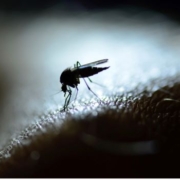Antibodies induced by mRNA COVID-19 vaccines keep improving in quality for at least six months while the immune system continues to “train” its antibody-producing B cells, according to a new study. In other research, dysfunctional red blood cells contribute to the blood vessel injuries common in severe COVID-19, according to laboratory studies that also may suggest a way to treat the problem.
The U.S. Food and Drug Administration approved Sanofi’s proposed drug to address red blood cell destruction in patients living with a rare form of anemia called cold agglutinin disease (CAD).
Investors Hand Disc Medicine $90 Million to Control Hematological Diseases Published: Sept. 2, 2021 By Heather McKenzie BioSpace A two-year-old biopharma company tackling rare blood diseases has received a […]
Researchers from the Francis Crick Institute and the Latvian Institute of Organic Synthesis developed a new compound that blocks a step in the life cycle of the mosquito-borne parasite that causes malaria.
The U.S. Food and Drug Administration approved Chiesi Global Rare Diseases’ Ferriprox (deferiprone) for the treatment of transfusional iron overload caused by sickle cell disease or other anemias in adults and children ages 3 years and older.
Apellis Pharmaceuticals’ pegcetacoplan beat out Alexion Pharmaceuticals’ Soliris in the Phase III PEGASUS study in adults with paroxysmal nocturnal hemoglobinuria (PNH).
The U.S. Food and Drug Administration approved Oxbryta (voxelotor), a drug from Global Blood Therapeutics Inc. developed to treat sickle cell disease in adults and children 12 years or older.





